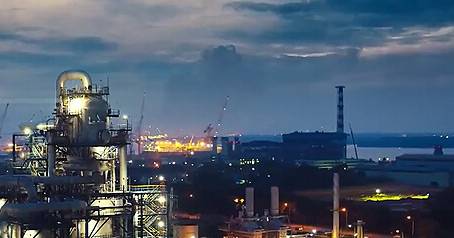Set . 28, 2024 20:33 Back to list
HDPE Pipe Sprinkler Systems for Efficient Irrigation Solutions and Water Management
The Advantages of HDPE Pipe Sprinkler Systems
In the world of agriculture and landscaping, effective irrigation is crucial for ensuring vibrant, healthy plants and optimized crop yields. Among the various irrigation methods available, HDPE (High-Density Polyethylene) pipe sprinkler systems have emerged as a popular choice for both large-scale agricultural practices and smaller gardening projects. This article delves into the numerous benefits of using HDPE pipe sprinkler systems, their applications, and why they may be the right irrigation solution for you.
What is HDPE?
High-Density Polyethylene, or HDPE, is a thermoplastic made from petroleum. It is known for its high strength-to-density ratio, making it an excellent material for manufacturing pipes. HDPE is resistant to impact, chemicals, and UV radiation, which gives it a longer lifespan compared to traditional materials such as PVC. Moreover, HDPE is lightweight and flexible, which makes it easier to handle and install.
Key Advantages of HDPE Pipe Sprinkler Systems
1. Durability and Longevity
HDPE pipes are designed to withstand harsh environmental conditions, including extreme temperatures and corrosive elements. This durability translates to a longer service life, often exceeding 50 years. Farmers and landscapers can invest in HDPE sprinkler systems with the confidence that their irrigation infrastructure will remain intact for many seasons to come.
2. Cost-Effectiveness
While the initial investment in HDPE pipes may be slightly higher than that of traditional materials, the long-term savings are significant. Reduced maintenance costs, fewer replacements, and lower energy expenses due to efficient water distribution make HDPE sprinkler systems an economically viable option in the long run. Additionally, their lightweight nature reduces transportation and installation costs.
Using HDPE for irrigation contributes to environmental sustainability. The material is recyclable, meaning that products made from HDPE can be reused at the end of their life cycle. Furthermore, HDPE pipes help minimize water wastage by delivering water directly to the root zone, which is particularly beneficial in water-scarce regions. The efficiency of HDPE systems can significantly enhance water conservation efforts.
hdpe pipe sprinkler

4. Versatility in Applications
HDPE pipe sprinkler systems are incredibly versatile and can be used in a variety of settings, from large agricultural fields to residential gardens and public parks. They can be adapted to different sprinkler configurations, allowing for customized watering solutions tailored to specific plant needs. This adaptability also allows farmers to optimize their irrigation based on seasonal variations and crop requirements.
5. Ease of Installation
The lightweight nature of HDPE pipes simplifies the installation process. They can be easily transported, handled, and connected, reducing labor costs and installation time. Additionally, HDPE pipes can be joined using various methods, such as butt fusion or electrofusion, ensuring a secure and leak-proof connection.
6. Prevention of Clogging and Erosion
Unlike traditional metal pipes, which can corrode and lead to clogging, HDPE pipes possess a smooth inner surface that reduces friction and prevents the buildup of debris. This feature not only ensures a more efficient flow of water but also minimizes the potential for erosion in the soil, helping maintain the integrity of the irrigation system.
7. Automation Capabilities
Modern HDPE sprinkler systems can be integrated with advanced irrigation technology, including automated timers and moisture sensors. These systems can adjust watering schedules based on real-time weather data, ensuring that plants receive the optimal amount of water without over-irrigating. This technological integration further enhances water conservation and efficiency.
Conclusion
In conclusion, HDPE pipe sprinkler systems offer a multitude of advantages for those looking to implement efficient and sustainable irrigation practices. From their durability and cost-effectiveness to their environmental benefits and ease of installation, HDPE pipes present a robust solution for modern watering needs. Whether for large agricultural setups or small home gardens, HDPE pipes can revolutionize the way we manage and conserve water in our landscapes. With their practicality and adaptability, it's no wonder that HDPE sprinkler systems are becoming a preferred choice in the irrigation sector. By choosing HDPE, anyone can contribute to more sustainable practices while achieving healthier plants and optimized growth.
-
Transparent PVC Pipe: Clear Flexible Tubing for Fluids
NewsAug.09,2025
-
Durable PP Rigid Sheet: Versatile & High-Quality Plastic Panels
NewsAug.08,2025
-
Premium Glossy PP Rigid Sheet – Durable & Versatile
NewsAug.07,2025
-
High-Quality HDPE Sheet | Durable Plastic Panels
NewsAug.06,2025
-
High-Precision PVC Rigid Sheets for Vacuum Forming | AI-Optimized
NewsAug.05,2025
-
Durable PVC-M Water Supply Pipes | 60-Year Life
NewsAug.04,2025

